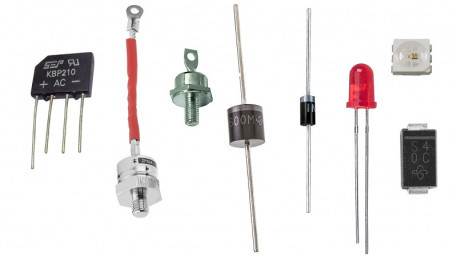
Some devices, like switches, are non-polar; you can connect them in either direction. What makes diodes so special, and how can you tell the right way from the wrong way?
Some devices, like switches, are non-polar; you can connect them in either direction. What makes diodes so special, and how can you tell the right way from the wrong way?
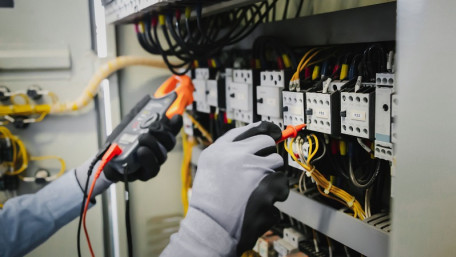
Do you know enough about electricity to poke around in a conversation, but not inside a breaker panel? Read on for an…
Do you know enough about electricity to poke around in a conversation, but not inside a breaker panel? Read on for an introduction to electricity in a way you’ve (probably) never heard it before!
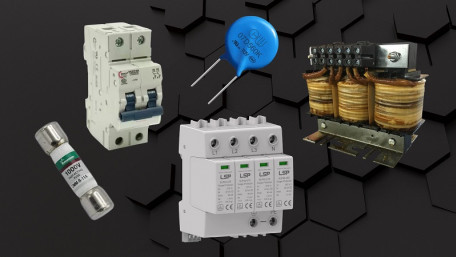
Protection against faults is crucial for any electrical system. This article examines various protective devices,…
Protection against faults is crucial for any electrical system. This article examines various protective devices, highlighting their roles and best use cases to ensure system integrity and longevity.
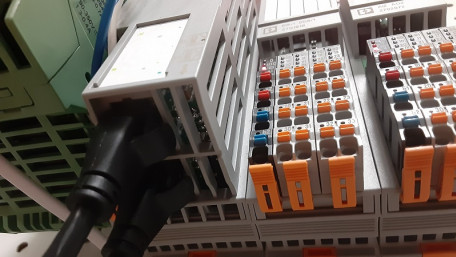
Every automated cell requires a ‘brain’ in order to achieve the required tasks. How do you determine the necessary…
Every automated cell requires a ‘brain’ in order to achieve the required tasks. How do you determine the necessary I/O, communication protocols, and processor necessary for controlling your system?
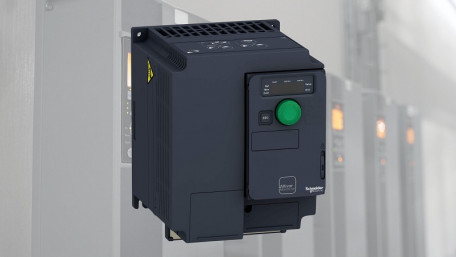
This article investigates the basic principles of inverters, different types of DC-to-AC conversion, and common…
This article investigates the basic principles of inverters, different types of DC-to-AC conversion, and common applications for generating AC voltage in manufacturing.
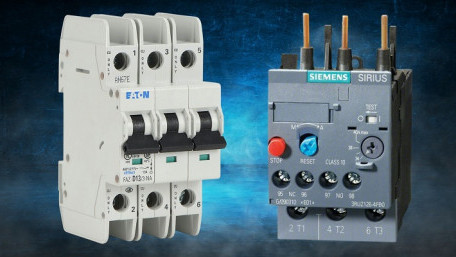
We know what a circuit breaker is meant to do: stop the flow of electricity in case of a fault or failure. But just like…
We know what a circuit breaker is meant to do: stop the flow of electricity in case of a fault or failure. But just like fuses, breakers and overloads respond differently depending on the load.
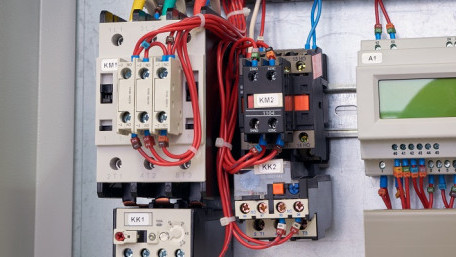
This article investigates the basic components and wiring conventions for common three-phase motor starter…
This article investigates the basic components and wiring conventions for common three-phase motor starter configurations, including direct online, reversing, and star-delta.
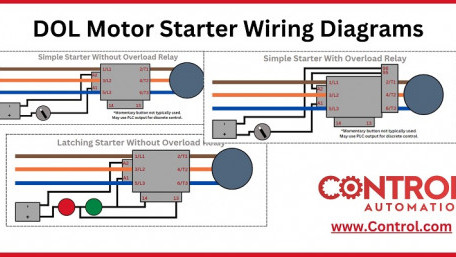
Complete wiring guide for 3-phase motor starters with and without overload (OL) relays.
Complete wiring guide for 3-phase motor starters with and without overload (OL) relays.
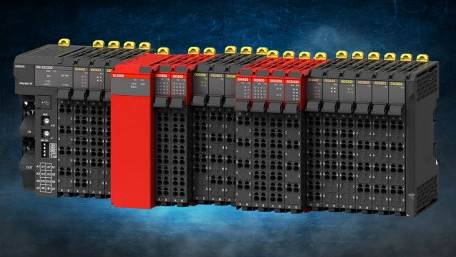
This article investigates the basic qualities that make up a safety PLC, what distinguishes a safety PLC from a standard…
This article investigates the basic qualities that make up a safety PLC, what distinguishes a safety PLC from a standard model, and the reasons for which a safety PLC may be critical.
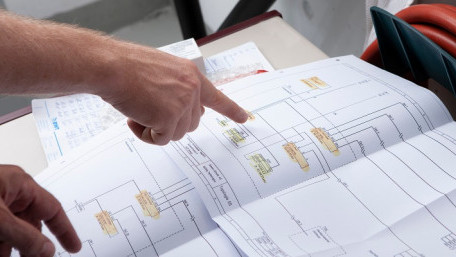
In order to trace control system problems to the core, the ability to read and interpret various resources, from…
In order to trace control system problems to the core, the ability to read and interpret various resources, from facility-level diagrams to machine-level wiring layouts, is critical.
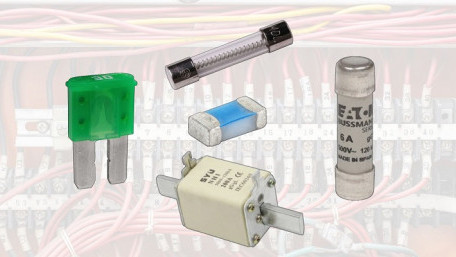
Protecting equipment and personnel from overcurrent dangers, like sparks and fires, is the primary job of the humble…
Protecting equipment and personnel from overcurrent dangers, like sparks and fires, is the primary job of the humble fuse, one of the most basic, yet critical of all safety devices.
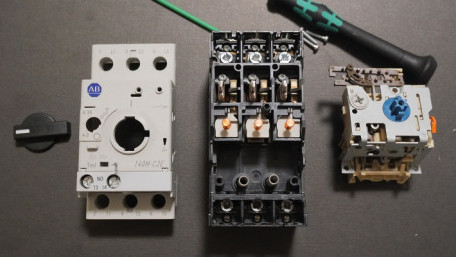
We depend on circuit breakers all the time, even when you have a day off or work from home. These overcurrent protection…
We depend on circuit breakers all the time, even when you have a day off or work from home. These overcurrent protection devices keep machines running safely, reducing the risk of fires and arcing.
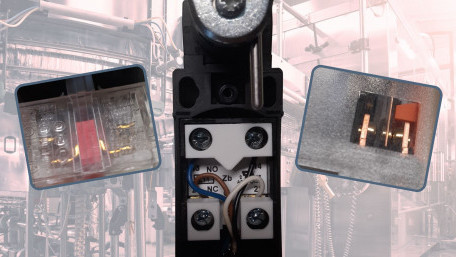
Some terminology, like 'normally open' and 'normally closed' switch contacts, is common throughout industry but can still…
Some terminology, like 'normally open' and 'normally closed' switch contacts, is common throughout industry but can still be confusing, misleading, or even hazardous if not properly understood.
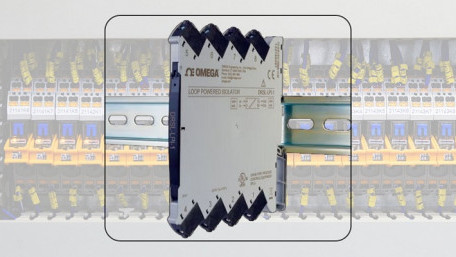
Many signal sources and process transmitters do not include isolation, which can cause problems when the instruments are…
Many signal sources and process transmitters do not include isolation, which can cause problems when the instruments are at different locations. A loop powered isolator is often the solution.
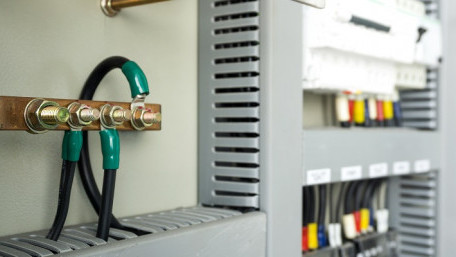
Additional rules for the grounding and bonding of industrial control panels include the sizing of ground conductors and…
Additional rules for the grounding and bonding of industrial control panels include the sizing of ground conductors and the conditions that dictate when power supplies and transformers must be grounded.
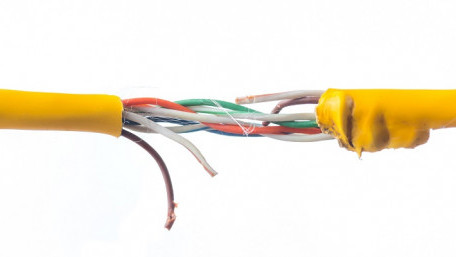
Whether working with measurement tools or process controllers, it is important to recognize faulty display values and the…
Whether working with measurement tools or process controllers, it is important to recognize faulty display values and the best ways to fix them.
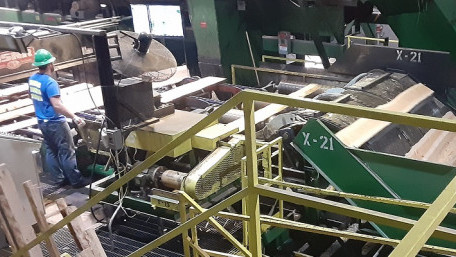
From forest to felling, logging road to mill, finished lumber’s adventure on its way to market is filled with control…
From forest to felling, logging road to mill, finished lumber’s adventure on its way to market is filled with control and automation. Learn about the process from start to finish and how lumber mills ensure the world has access to high-quality lumber thanks to control technology.
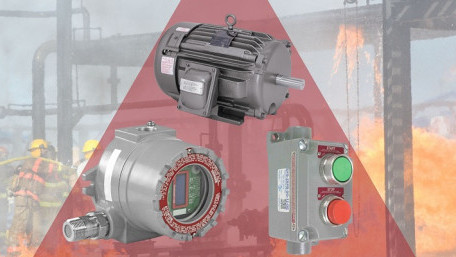
Some workplaces are more dangerous than others, not because of the practices, but rather the products. Where do…
Some workplaces are more dangerous than others, not because of the practices, but rather the products. Where do explosions occur, and what practices exist to reduce such risk for equipment and workforce?
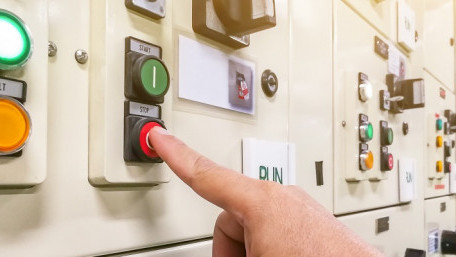
Driving motors is one of the most fundamental automation tasks, but understanding and selecting the proper motor soft…
Driving motors is one of the most fundamental automation tasks, but understanding and selecting the proper motor soft starter for your application may require more investigation than you thought.
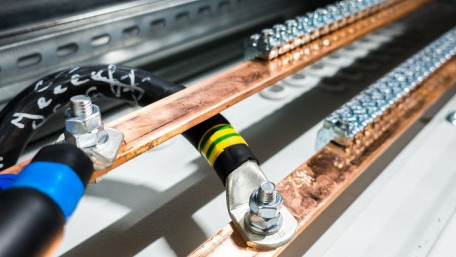
Ground wires reduce the risk of injury and damage from faulty equipment. Shops designing according to the UL 508A…
Ground wires reduce the risk of injury and damage from faulty equipment. Shops designing according to the UL 508A standard must understand how, when, and why to properly ground and bond circuits.
